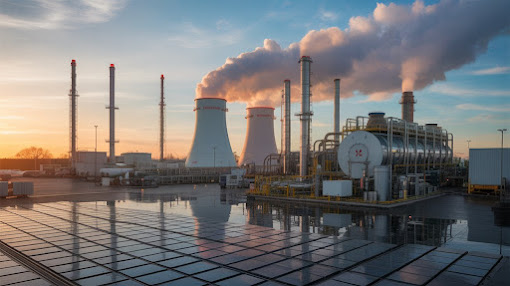Factors affecting deep learning model performance in citizen science–based image data collection for agriculture: A case study on coffee crops
Boosting Deep Learning in Citizen Science: Lessons from Coffee Crop Monitoring ☕🌱
Citizen science is revolutionizing agriculture, allowing farmers and researchers to collaborate using AI-driven tools. But when it comes to using deep learning for image-based data collection—like monitoring coffee crops—several factors can make or break model performance. Let's dive into the key challenges and solutions! 🚀
1. Data Quality & Diversity 📸
Garbage in, garbage out! If the images collected by citizen scientists are blurry, inconsistent, or lack variety, the deep learning model struggles to learn. Ensuring high-quality, well-annotated images is crucial.
✅ Solution: Provide clear guidelines on capturing images, covering different angles, lighting conditions, and stages of plant growth. 🌿
2. Device & Sensor Limitations 📱📷
Not all smartphones or cameras are created equal! Some users might upload high-res images, while others contribute low-quality photos, affecting model training.
✅ Solution: Standardize image resolution and preprocessing techniques to balance the dataset. 📏
3. Environmental Variability 🌦️
Natural lighting, shadows, background clutter, and weather conditions can make it hard for AI to detect coffee plant diseases or growth patterns.
✅ Solution: Train the model with diverse environmental conditions to improve robustness. 🌤️🌧️
4. Annotation Accuracy 🏷️
Deep learning thrives on labeled data, but if volunteers mislabel images, the model learns the wrong patterns.
✅ Solution: Implement crowd-sourced verification or expert-reviewed corrections to maintain label integrity. ✔️
5. Computational Power & Latency ⚡
Processing large datasets in real-time can be demanding, especially if cloud computing isn't an option for farmers in remote areas.
✅ Solution: Optimize AI models for edge computing, allowing local processing on mobile devices. 📲
6. Community Engagement & Training 👨🌾📚
A well-informed community leads to better data collection! If contributors lack knowledge about plant diseases or growth stages, the data quality suffers.
✅ Solution: Conduct training sessions, develop user-friendly apps, and gamify participation to encourage high-quality submissions. 🎮🏆
Final Thoughts 💡
Citizen science in agriculture has immense potential, but ensuring deep learning models perform well requires addressing these challenges head-on. By improving data collection, annotation, and processing techniques, we can make AI-driven coffee crop monitoring more effective and accessible! ☕🚜
International Phenomenological Research Awards
Website Link: https://phenomenologicalresearch.com/
Nomination Link: https://phenomenologicalresearch.com/award-nomination/?ecategory=Awards&rcategory=Awardee
Contact Us For Enquiry: contact@phenomenologicalresearch.com
#Phenomenology#ResearchAwards#InternationalAwards#AcademicRecognition#QualitativeResearch#PhenomenologicalStudies#ScholarlyAchievement#ResearchExcellence#HumanScienceResearch#professor #academic #sciencefather#VoiceTherapy #MentalEffort #PatientPerception #VocalRehabilitation #SpeechTherapy #CognitiveLoad #PatientExperience #TherapeuticOutcomes #VoiceHealth #HealthcarePsychology
You tube: https://www.youtube.com/channel/UCga5JVq6VElDLksyLzNqybg
Twitter: https://x.com/compose/post
Instagram: https://www.instagram.com/phenomenoresearch/?hl=en
Pinterest: https://in.pinterest.com/phenomenoresearch/
Blogger: https://phenomenological21.blogspot.com/
Whatsapp Channel: https://whatsapp.com/channel/0029Vazl6GD7z4kkTlmIbc29




Comments
Post a Comment